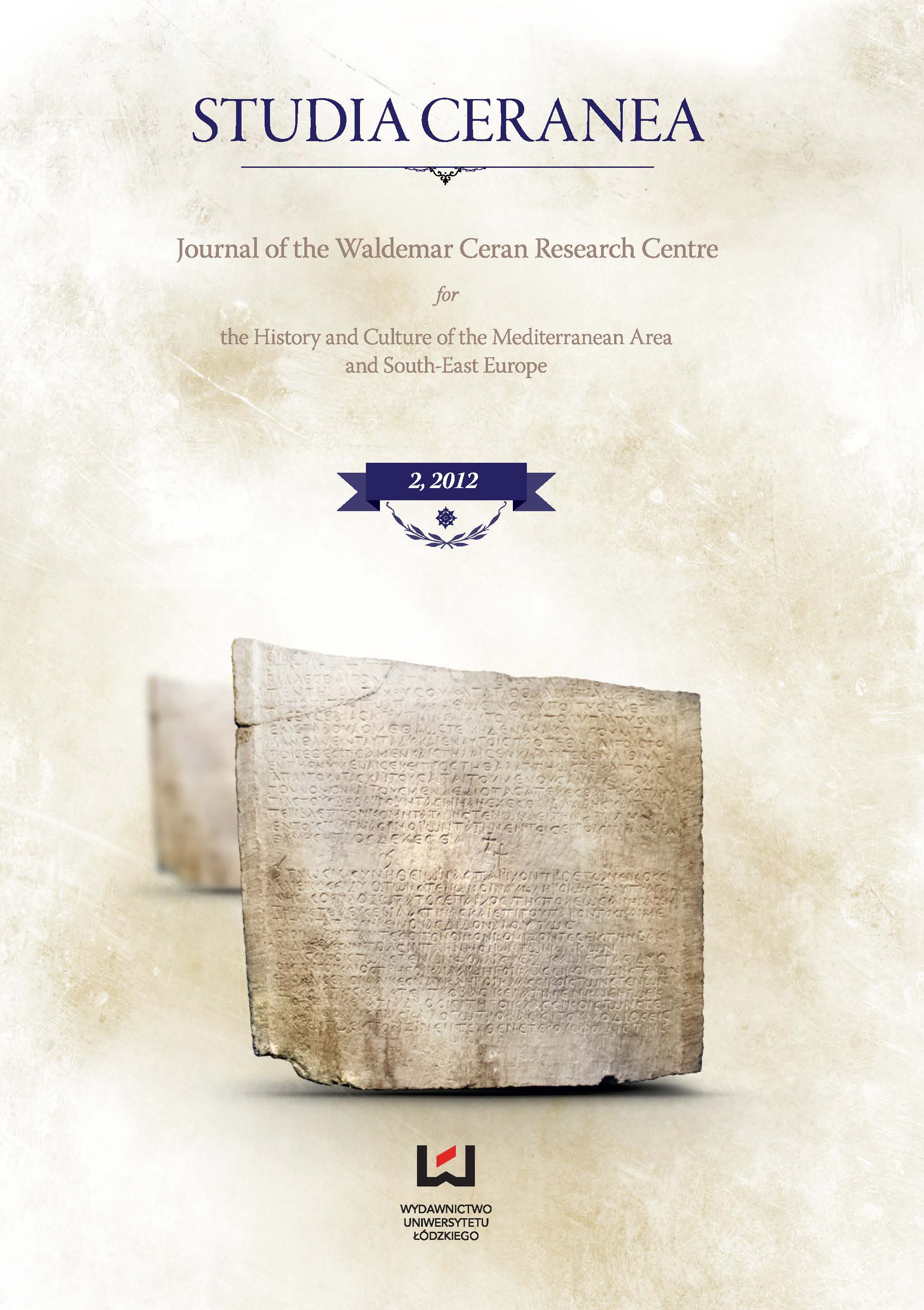Imprisonment of Tax Non-Payers – an Abuse of Power or a Measure of Legal Discipline?
DOI:
https://doi.org/10.18778/2084-140X.02.04Abstract
In the field of taxation there existed many casuistic crimes of Roman criminal law, committed both by tax payers and tax collectors, but non-payment of taxes was not one of them. As a rule taxpayers risked confiscation of property by avoiding the fulfillment of their obligation. There exists some historical evidence, however, which suggests the possibility of imprisonment of taxpayers. Was it possible to inflict criminal punishments in such cases? Legal texts give some reflections to the contrary– Roman emperors prohibited the use of imprisonment in non-criminal matters. The number of these prohibitions indicates, that there were many situations of this kind. It seems that especially in the provinces the governors abused their power and used illegal measures, such as tortures, whipping and imprisonment, to force citizens to pay taxes.
Downloads
References
Corpus Iuris Civilis, ed. T. Mommsen, vol. I, Berolini 1906.
Google Scholar
Corpus Iuris Civilis, ed. T. Mommsen, vol. II, Berolini 1954.
Google Scholar
Berger A., Encyclopedic Dictionary of Roman Law, Philadelphia 1953.
Google Scholar
Mommsen T., Römisches Strafrecht, Leipzig 1899.
Google Scholar
Ammianus Marcellinus, Rerum gestarum libri qui supersunt, XXX, 5, 6, trans. J. C. Rolfe, vol. II, London–Cambridge Mass. 1940.
Google Scholar
Theodosiani libri XVI cum Constitutionibus Sirmondianis et leges novellae ad Theodosianum pertinentes, ed. T. Mommsen, P.M. Meyer, vol. I–II, Berolini 1954.
Google Scholar
Scott S.P., The Civil Law, Cincinnati 1932.
Google Scholar
Kołodko P., Rzymska terminologia prawna stosowana na określenie narzędzi stosowanych podczas chłosty, „Zeszyty Prawnicze UKSW”, 6, 2006, p. 121–144.
Google Scholar
Kołodko P., Chłosta jako dodatkowy środek karny zaostrzający dolegliwość właściwej kary, [in:] Salus rei publicae suprema lex. Ochrona interesów państwa w prawie karnym starożytnej Grecji i Rzymu, ed. A. Dębiński, H. Kowalski, M. Kuryłowicz, Lublin 2007, p. 87–102.
Google Scholar
Sondel J., Słownik łacińsko-polski dla prawników i historyków, Krakow 1997.
Google Scholar
Amielańczyk K., Custodia, carcer, vincula publica. Pozbawienie wolności w rzymskim prawie karnym za panowania cesarza Hadriana, [in:] Współczesna romanistyka prawnicza, red. A. Dębiński, M. Wójcik, Lublin 2004, p. 11–24.
Google Scholar
Lovato A., Il carcere nel diritto penale romano dal Severi a Giustiniano, Bari 1994.
Google Scholar
Krause J.-U., Gefängnisse im Römischen Reich, Stuttgart 1996, p. 271–304.
Google Scholar
Litewski W., Rzymski proces karny, Kraków 2003.
Google Scholar
Cassius Dio, Roman History, LVIII, 3, trans. E. Cary, H.B. Foster, vol. VII, Cambridge 1959.
Google Scholar
Josephus Flavius, Jewish Antiquities, XVIII, 6, 7, trans. L.H. Feldman, vol. VIII, Cambridge 1965.
Google Scholar
Suetonius, De vita caesarum / The Lives of the Caesars, De vita Caesarum, VII, 2, 3, trans. J.C. Rolfe, Cambridge 1960.
Google Scholar
Cardascia G., L’apparition dans le droit des classes d’honestiores et d’humiliores, „Revue historique de droit francais et etranger” 27, 1950, p. 305–337, 461–485.
Google Scholar
Garnsey P., Social status and legal privilege in the Roman Empire, Oxford 1970.
Google Scholar
Rilinger R., Humiliores-honestiores. Zu einer sozialen Dichotomie im Strafrecht der römischen Kaiserzeit, München 1988.
Google Scholar
Balzarini M., Nuove prospettive sulla dicotomia honestiores-humiliores, [in:] Idee vecchie e nuove sul diritto criminale, a cura di A. Burdese, Padova 1988.
Google Scholar
Amielańczyk K., Rzymskie prawo karne w reskryptach cesarza Hadriana, Lublin 2006.
Google Scholar
The Theodosian Code and Novels and the Sirmondian Constitutions: A Translation with Commentary, Glossary, and Bibliography, trans. C. Pharr, Princeton 1952.
Google Scholar
Tovar S.F., Violence in the Process of Arrest and Imprisonment in Late Antique Egypt, [in:] Violence in Late Antiquity: Perceptions and Practices, ed. H.A. Drake, Aldershot–Burlington 2006.
Google Scholar
Downloads
Published
How to Cite
Issue
Section
License

This work is licensed under a Creative Commons Attribution-NonCommercial-NoDerivatives 4.0 International License.














